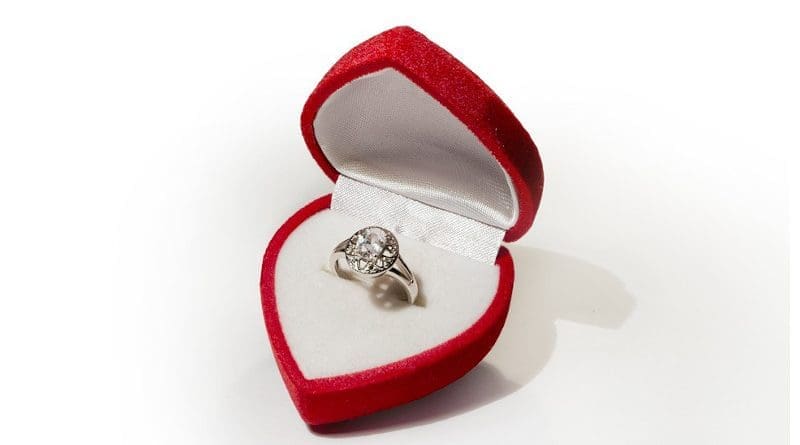For Valentine’s Day, Traceable, Transparent Jewelry Supply Chains
Jewelry and watch companies should improve efforts to ensure that human rights are respected in their global supply chains, Human Rights Watch said ahead of Valentine’s Day on February 14, 2021.
Human Rights Watch issued “20 Questions Company Officials Should Ask to Guide Action,” which jewelers and other industry experts can use as a starting point to understand a jewelry company’s sourcing practices and respect for human rights.
The questions deal with a company’s transparency, traceability, and steps to identify and respond to human rights risks in their global supply chain, including at mines of origin. A recent Human Rights Watch report and ranking of jewelry companies’ sourcing practices found that even though major brands have made some progress, most jewelry companies are still falling short on key processes that are integral to a robust human rights risk assessment and response.
“Jewelry companies around the world should ensure that the jewelry they sell is sourced from mines where human rights are respected,” said Juliane Kippenberg, associate children’s rights director at Human Rights Watch. “This Valentine’s Day, consumers buying jewelry for loved ones should send companies a strong message – what symbolizes love and joy should not be made in abusive conditions.”
Labor rights violations, violence, and other abuses have remained a serious problem in gold and diamond mining. Human Rights Watch has documented horrific violence against miners and residents in Venezuela and Zimbabwe, and found hazardous child labor in small-scale mining in Ghana, the Philippines, Mali, and Tanzania. The Covid-19 pandemic, as well as restrictions on movement and blocked trade routes, has created additional human rights risks.
Child labor in mining has increased due to families’ poverty and school closures, for example in Zimbabwe, Guinea, and the Central African Republic. Some mines have become hotspots for the spread of Covid-19. And as governments have been less able to inspect mines and enforce regulations, unlawful mining has expanded in some areas.
Jewelry and watch companies have a responsibility to conduct human rights and environmental due diligence to ensure that they do not cause or contribute to rights abuses in their supply chains, in line with the United Nations Guiding Principles on Business and Human Rights. “Due diligence” refers to a company’s process to identify, prevent, address, and remediate human rights and environmental impacts in their supply chains.
Jewelry and watch companies’ sourcing practices at times fall short, Human Rights Watch said. Most of the 15 companies that Human Rights Watch assessed and ranked in its November 2020 report could not identify the mines of origin for their gold or diamonds, nor did they assess and address human rights risks at these mines. Most companies also did not report in detail on their due diligence efforts. Certification standards used in the jewelry industry are often insufficiently rigorous and lack transparency.
But Human Rights Watch also found some encouraging news: 11 of the 15 companies assessed had taken some steps to improve their human rights due diligence since 2018. And since the publication of the report, Human Rights Watch has received additional information from several jewelry companies profiled in the report on specific responsible sourcing measures.
For example, the Indian jeweler Tanishq has started to address working conditions among its direct suppliers – manufacturers – and committed to bring them up to a higher standard by 2022. The US jeweler Signet has pledged to make its diamond suppliers public on a regular basis. And the Japanese jeweler Mikimoto also responded to Human Rights Watch for the first time and shared details about its practices, though it has not disclosed any information publicly.
The Human Rights Watch “20 Questions” are not comprehensive, but are designed as a simple first step that can help jewelry and watch companies of any size – and others, including investors – understand a company’s sourcing practices and identify concrete ways to improve. Human Rights Watch used these questions as a basis for examining the human rights policies and practices of some of the world’s largest and best-known jewelry and watch companies in its 2018 and 2020 reports.
“This Valentine’s Day, we are calling upon all jewelry companies to make sure their supply chains are free of human rights abuse,” Kippenberg said.

